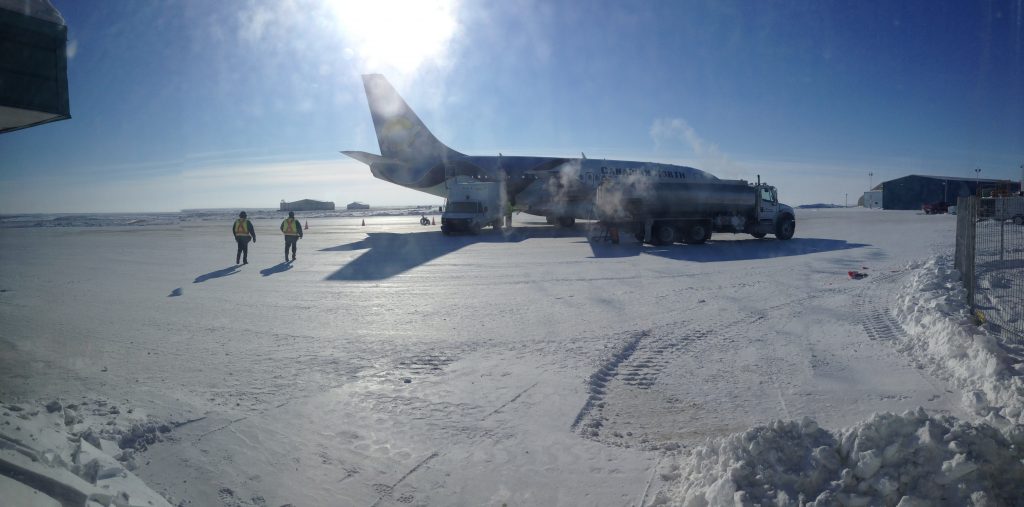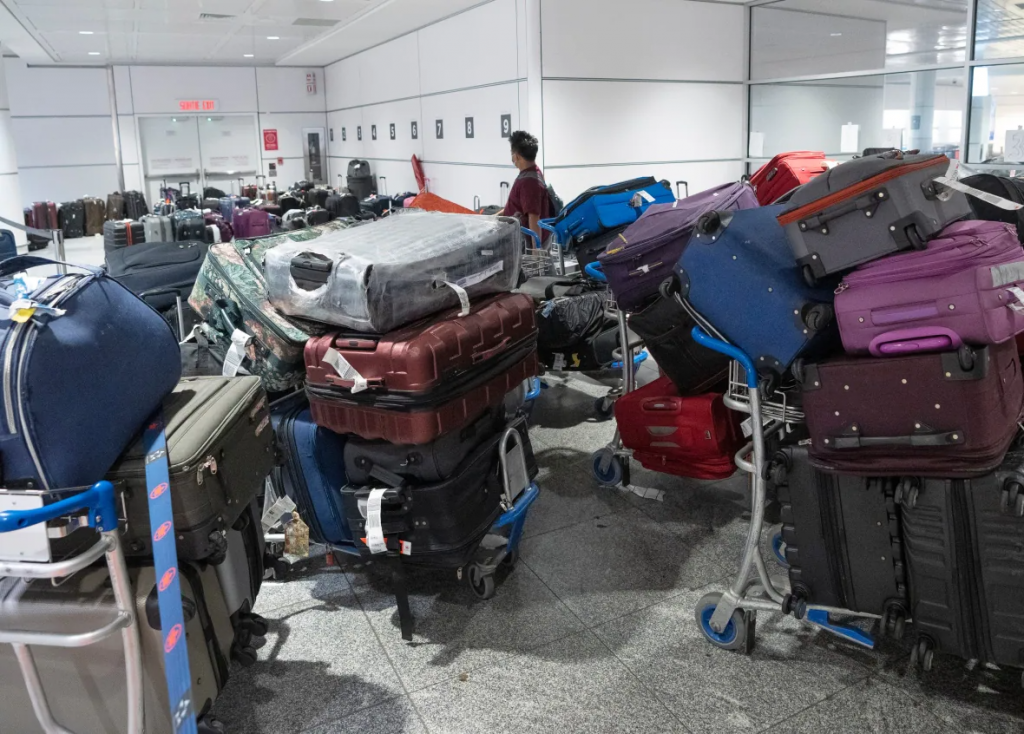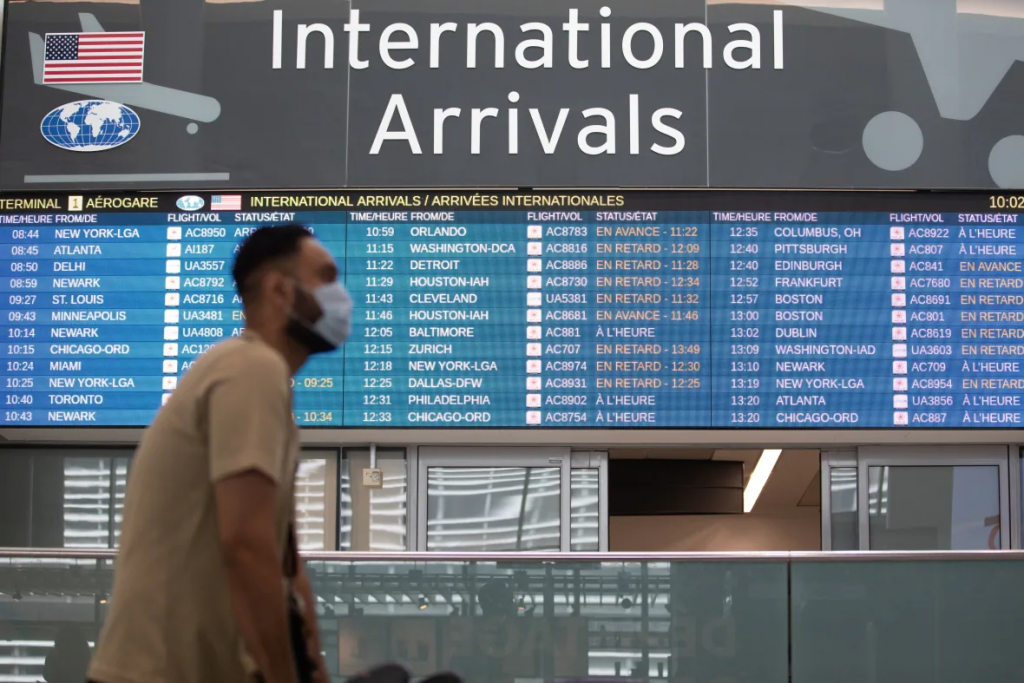Regional carriers need protection, say northern airline experts

The federal government needs to mandate interline agreements with big carriers, experts say
Cutbacks to flights in southern Canada could create more issues for passengers of small airlines in the North, say some northern airline experts.
Last week Air Canada said it would be scaling back the number of flights it offers to help deal with a surge in demand with too few staff to handle the spike.
While Air Canada said there would be no schedule reductions for Whitehorse and Yellowknife, experts say the cutbacks could still create issues for passengers of small airlines who rely on large carriers for connecting flights.
Joe Sparling, the president of Air North, said people who travel from the North to southern Canada often are faced with connecting flights. That means passengers have to buy separate tickets with a separate airline to get to their final destinations — and if they miss the connecting flights, the large carrier isn’t necessarily on the hook to ensure they’ll get on another flight.
“They’re not guaranteed that their bags are connected. They’re not guaranteed that the connecting airline will look after them in the event of a late flight. There’s often a duplication of fees and taxes,” Sparling said.
Problems may be just beginning
Now, with the backlog at airports and flights being cut, the problems could be exacerbated.
Sparling said it’s now high time that large carriers enter into interline agreements with small carriers so that they can be on a single itinerary.
“Every community in Canada that gets scheduled air service, residents of that community should be able to get to any other community in Canada or even outside of the country as seamlessly and affordably as possible,” he said. “That’s not the case now.”
Air North provides service to Dawson City and Old Crow in Yukon, and to Inuvik, N.W.T. It also provides gateway service to Vancouver, Victoria, Kelowna, Edmonton, Calgary and Yellowknife.
Sparling said without interline agreements, “various travel networks, particularly those involving regional communities, are disconnected from the rest of the country.”
Interlines have been suggested for years
Connecting two large carrier routes with interline agreements is something that airlines like Air North have been suggesting for years, Sparling said.
An interline agreement requires individual airlines to work co-operatively to bring passengers and their baggage to their final destination even if they are flying on multiple airlines.
Interline agreements also help flyers get on their next flight without needing to re-check baggage, and they allow for free re-booking if passengers miss a connection due to a delay.
A House of Commons transport committee recommended mandatory interline agreements between all scheduled carriers when Air Canada was poised to “gobble up” Canadian airlines years ago, said Sparling.
He said without these agreements in the industry, smaller competition gets squeezed out.
Canada has lost many regional carriers which flew all over the world, he said.

Sparling says the airline industry needs similar regulations to those applied to large telecom carriers, which are required to give small telecom carriers space on their networks.
“Now we have, in essence, a duopoly in Canada with two very large carriers that only fly to about a third of all the communities that receive scheduled air service,” he said.
Roughly 20 regional carriers are flying to the majority of communities in Canada, and protecting their sustainability and affordability is needed for northern residents who rely on regional carriers for leisure travel, medical travel and education, Sparling said.
“In the case of the North, there are parts of that market that [large carriers] have no interest in serving,” he said. “It would be doing a great disservice if you’re not ready to do the whole job.”
Asked what airlines would lose if they signed on to interline agreements, Sparling said they “perhaps could be forgoing an opportunity to step on the little guys and, you know, take over [the] market themselves.”
CBC News reached out to Air Canada and asked whether the company plans to sign any full interline agreements with northern airlines. Air Canada did not respond before deadline.
‘Interline agreements will help solve’ airline problems
Fred Lazar, an associate professor at the Schulich School of Business at York University in Toronto, agreed that northern airline passengers have little recourse if they encounter delays or miss a flight due to delays when trying to catch their next flight in the South.

They might have to rebook and pay fees, or they might find they can’t be rebooked at all, said Lazar.
Lazar said further flight shortages could affect northern travellers, especially if there are last-minute cancellations of a connecting flight. With fully-booked flights, a single cancellation can cause “cascading” delays, and it could take days before a passenger is rebooked.
“Interline agreements will help solve those problems, problems that really increase the cost and the complexity for travellers from the North,” he said.
He added that with interline agreements, the North would not need larger carriers to fly into northern cities, which he said would result in fewer, and fuller flights on regional airlines, with less fuel burned.

So far, the federal government has not made regulations stipulating that large carriers sign on to interline agreements with regional airlines.
In the 1980s, the industry was de-regulated without a policy for the North.
“It was, ‘OK, we de-regulate the South and somehow the North will take care of itself,'” Lazar said.
Lazar said he doesn’t think bigger airlines are jumping to form interline agreements with northern carriers. They might be interested, he said, but it’s “not a priority,” and he said the connecting traveller market is too small to warrant the investment in connecting the airlines’ technologies.
Related stories from around the North:
Canada: $9.5M staff house to be built in Nunavik for Air Inuit employees, Eye on the Arctic
Norway: Amid record Covid-19 cases in both countries, Norway ends mandatory entry quarantine for travelers from Russia, The Independent Barents Observer



